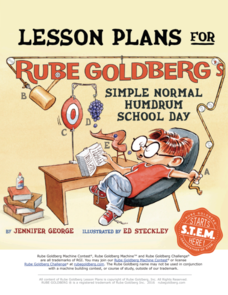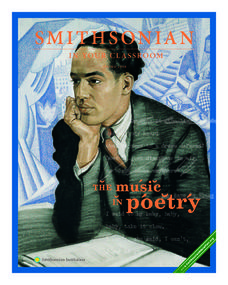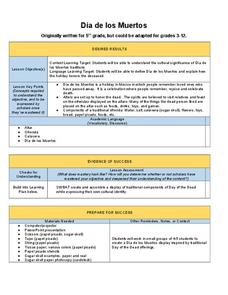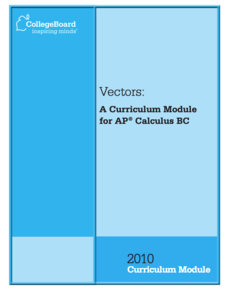National Geographic
Eat an Alien Invader
If you are looking for a lesson about invasive species to ocean habitats, you have arrived! Introduce the concept to learners and have them read an article about marine invasive species. Vocabulary, relevant web links, and a cute handout...
National Geographic
Spot Where You DON'T Get Your Seafood
When your class is examining the fishing industry or sustainable practices, you can use this brief activity to demonstrate the global impact our food choices have. Overharvesting, overfishing, and bycatch are important topics to address...
Canton Museum of Art
Personal Clay Box
High schoolers will love this geometrically exact ceramics project; they create a personalized clay box using the slab method and mathematical measurements. They utilize scoring and square construction and can decorate the boxes to...
Weebly
Hotel Rwanda
Terry George's 2004 award-winning film, Hotel Rwanda, is the focus of a study guide that asks viewers to examine how Paul's views change over the course of the film and to assess the accuracy of the film.
Federal Reserve Bank
Financial Fables: Shopping Wisely with Olivia Owl
Cover two subjects with one lesson! First, dive into English language arts; read an eBook, answer comprehension questions, and complete a cause and effect chart about the financial fable, Shopping Wisely with Olivia Owl. Then, take a...
Lerner Publishing
Teaching Vowel Combinations
Need some fun activities to augment your lessons on vowel patterns and phonemic awareness? Peruse a series of worksheets designed to help little ones with their early reading skills.
Florida Center for Reading Research
Comprehension: Expository Text Structure, Text Feature Find
Scholars explore an expository text to answer questions about its structure.
Howard Hughes Medical Institute
Niche Partitioning and DNA Metabarcoding
What is DNA metabarcoding? Show your biology class the latest method for studying biodiversity in an ecosystem with a fun, informative interactive. Individuals examine the animal species that compete for vegetation, then learn how their...
Curated OER
What Are the Advantages and Disadvantages of Conforming?
Dive into Arthur Miller’s The Crucible and determine what it means to conform in society, and discuss as a group with the thoughts and plans available in these documents. Included are multiple activities and brain targets that form the...
National Geographic
Altitude: What's in the Air?
Introuduce your scientists to the differences in air at varying altitudes with a colorful explanatory graph. After some discussion, they view unbelievable footage of mountain-climbing Leo Houlding and a narrative about how he might do...
Rain Bird Corporation
Rain Forest Teaching Curriculum
Take young naturalists on an exploration of the world's tropical rainforests with this extensive collection of lessons and activities. Whether its creating leaf and flower prints or investigating the absorption spectrum of chlorophyl,...
Rube Goldberg
Rube Goldberg's Simple Normal Humdrum School Day
If you're going to build a machine, you might as well make it interesting and amusing. A set of eight lessons and activities introduces simple machines using Rube Goldberg machines. A culminating project challenges techies to create and...
Metropolitan Museum of Art
Islamic Art and Geometric Design
After an overview of Islamic traditions and art, young artists create their own geometric shapes and patterns using only a straightedge and a compass.
Curated OER
Hummingbirds and Flowers: A Study of Co-Adaptive Relationships
Hummingbirds and flowers need each other to survive! Pupils explore the co-adaptation of hummingbirds and the flowering plants. They explain how a flowering plant has adapted to be pollinated by a hummingbird and how the hummingbird has...
Smithsonian Institution
Smithsonian In Your Classroom: The Music in Poetry
Take poetry off the page and put it into terms of movement, physical space and, finally, music with this series of three lessons from the Smithsonian Institution. This resource introduces students to two poetic forms that originated as...
Curated OER
Roman Holiday in Google Earth
Students plan an itinerary for an educational trip to Rome. For this research skills lesson, students use Google Earth to conduct research for their project in their travel teams. Students also set up blogs to share their progress...
Curated OER
Conducting Research Online
In a day and age when publishing online has never been easier, high schoolers need to know how to identify a credible source. Choose the PowerPoint slides most relevant to your lesson and spend more time on the hands-on activities provided.
Vanderbilt University
Dia de Los Muertos
To honor El Dia de los Muertos, scholars work together to create Day of the Dead displays—paper sugar skulls and banners—that bring a festive and memorable flare to the classroom.
College Board
AP® Psychology Cognition and Language
I can remember what happened five years ago, but I can't recall what I did last week! High school psychology students analyze how memory, cognition, and language impact one another. Hands-on activities, memory exercises, and research...
College Board
AP® Psychology: Teaching Statistics and Research Methodology
Psychologists use statistics? Scholars investigate the research behind the methodology of statistical analysis. Using hands-on practice, case-studies, and scatterplots, they complete various tasks to understand the very roots of high...
College Board
Vectors: A Curriculum Module for AP® Calculus BC
It is all in a matter of time. The model curriculum module uses parametric equations and vectors to solve problems dealing with particle motion along a curve. At the beginning of the lesson, the unit reviews parametric equations and...
Curated OER
A Lesson To Accompany "The First Bank of the United States: A Chapter in the History of Central Banking"
Here is an interesting topic. Learners examine the economics that led to the founding of the First Bank of America. They participate in a reader's theater experience depicting the debate between Alexander Hamilton and Thomas Jefferson...
Curated OER
Picture Books and the Bill of Rights
Students identify the basic freedoms of citizens in the United States. In this Bill of Rights lesson, students act out scenarios about the Bill of Rights. Students create a picture book describing the rights they've acted out.
Curated OER
Leveled Vocabulary for And Then There Were None
Chaotic, perjury, tenacious, vague, predatory, idiosyncrasy. Using Marzano and Brown’s six steps of direct instruction for vocabulary (choose, restate, illustrate, use, discuss, play) readers of And Then There Were None engage in a...

























